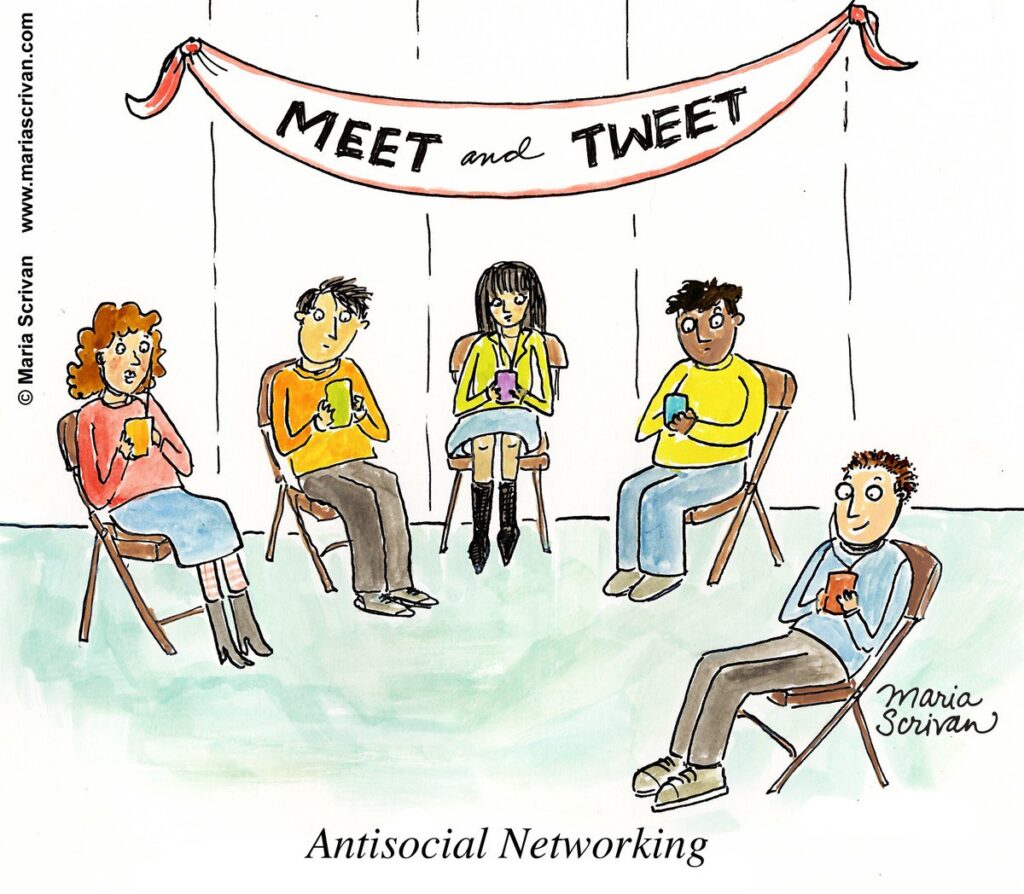By Angeliki Georgakopoulou,
In recent years, social media has become an inextricable reality in the lives of citizens. Especially during the turmoil of the pandemic, apps such as Facebook, Instagram, Snapchat, WhatsApp, and e-mails have replaced in-person communication. However, how “social” are we in reality, and how accurate is the term “social media”?
In order to examine the inherent hypocrisy of “social media”, one must begin by understanding the meaning of each term individually. The word “social” refers to being communicative, connected, and close to others. It appeals directly to the nature of humans as “social beings”, according to Aristotle. It implies that one, after detaching themselves from their “ego”, is able to assimilate into the wider community and, ultimately, form relationships with others. On the other hand, “media” is used to mean a vehicle that assists or facilitates the process of communication between two or more people.

However, the reality of social media is that it leads to the peak, or rather climax, of antisocial behaviors, as this communication becomes a hollow enterprise between two absentees. Instead of bringing people closer together, social media isolates them, driving them deeper and deeper into the trap of loneliness, competition, and violence. In today’s world, social media has become the nucleus of cyberbullying, verisimilitude, and crime. And that is because of the false pretense that one’s identity, dignity, and worth are protected or concealed. However, it is important to note that this way of thinking leads to deception. At first, in the form of self-deception, the user of social media is tricked into believing that they are both social and protected. At second, it expands into a means of deceiving others, as one chooses which aspects of themselves they reveal and forges relationships with others that lack substance and purity.
On the other hand, social settings have become mass concentrations of “antisocial beings”, lacking the basic skills of communication and conversation. The widespread phenomenon that now prevails in dining and entertainment areas, is isolation. People are absorbed in the liminal space created between the real world and that of social media; unaware of their company; absent in the presence of others. They become inanimate objects in the room, lacking connection with those around them; those sitting next to them; those talking to them. They become the deafening silence of the systematic alienation that is catalyzed by social media.
Hence, one arrives at the understanding that the term “social media” is hypocritical in itself. This conclusion derives from the fact that social media doesn’t offer means of true socialization but, rather, offers a temporary superficial solution by technologically connecting one’s account to other existing accounts worldwide. Thus, the exacerbation of the phenomena of loneliness and antisociality becomes transparent.




